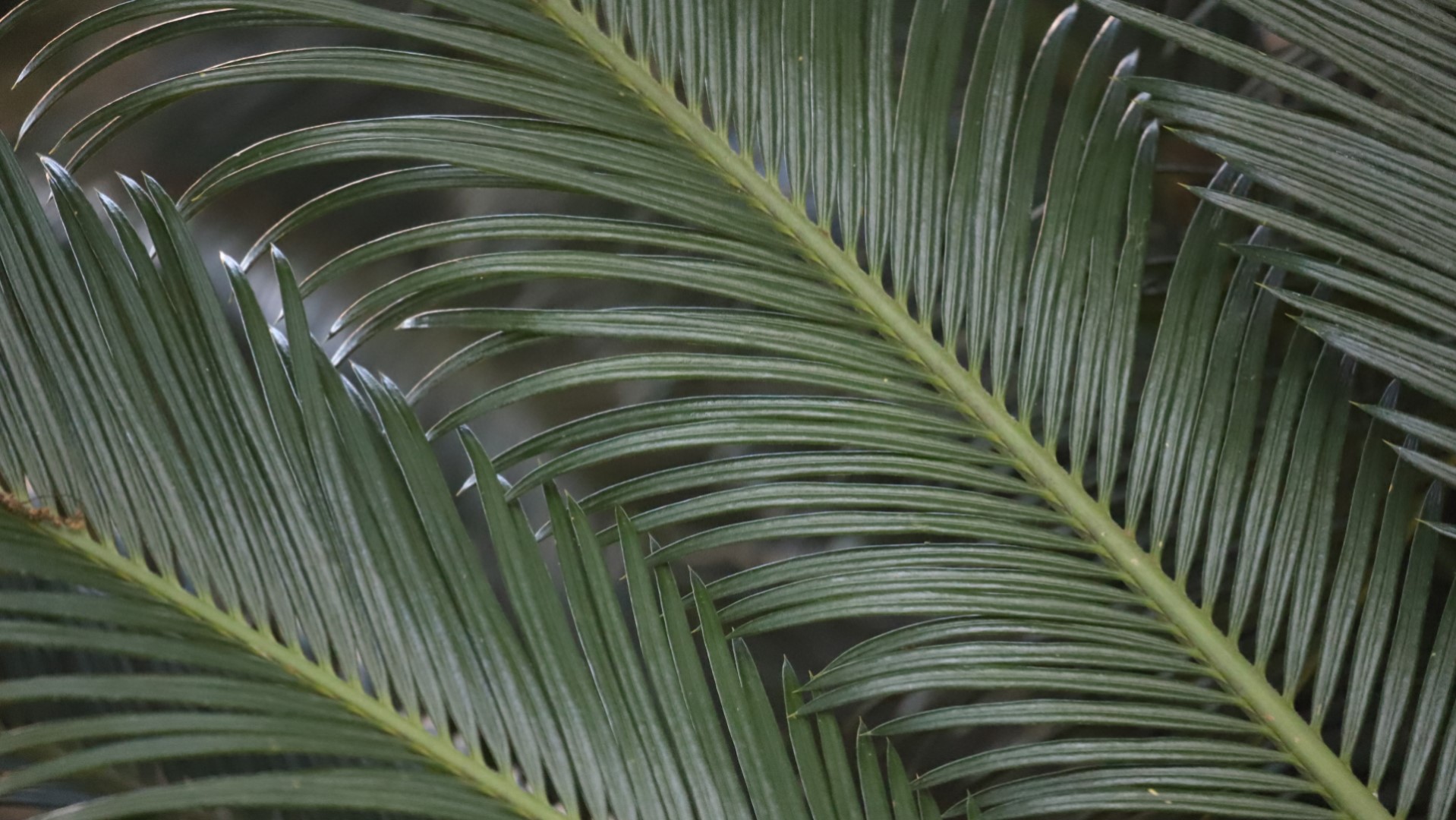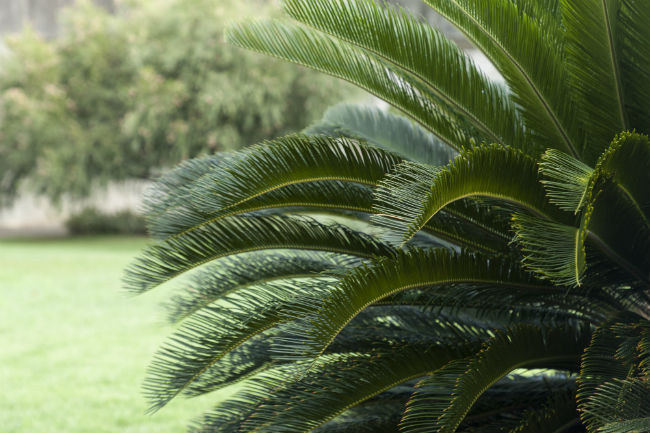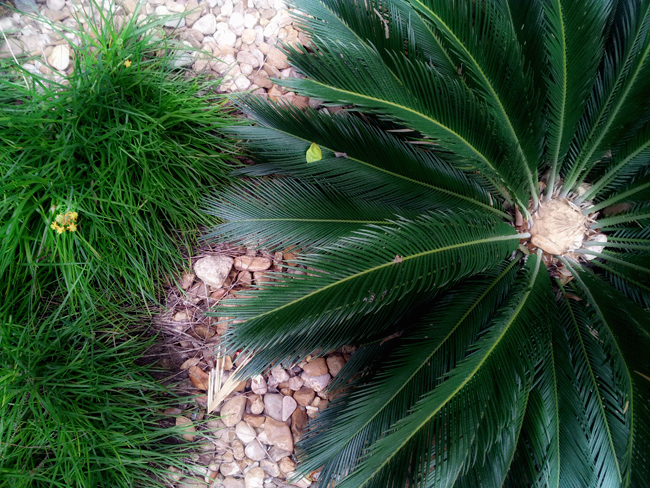Sun, but appreciates some afternoon shade in summer. Nearly evergreen down to about 15 degrees F, although damage will be extensive at lower temperatures. Sago is an ancient plant with arching glossy leaves and a palm-like form.
Sago tolerates many soil types, including clay, and it is extremely drought hardy once established; adult plants can go for months without supplemental water. Even if plants begin to drop leaves or dessicate in drought, they usually recover after rain.
The fruit on female plants are fatally toxic to dogs (and, unfortunately, they resemble a red rubber ball.)
Slow growing. Overwatering leads to crown and root rot. The leaf bases bear sharp tips and may require gloves for close handling. Expect damage from deep freezes; sagos were widely damaged from 2021-2023 in south Texas, both by cold and by the subsequent pruning and cleanup. It’s not a bad idea to hold off on pruning as long as you can — until new growth starts appearing on the crown in April — and limit pruning as much as possible to the worst-damaged leaves. Avoid removing all the leaves and leaving a bare crown, as this can kill the plant.


